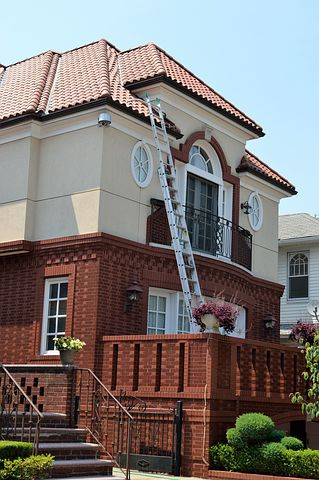Property development looks like an easy way to make a lot of money in a short amount of time. Anyone can do it with no formal qualifications or training.
 That doesn’t mean you can phone the bank for a loan and paint the walls for a quick and easy sale. There’s more to it than that.
That doesn’t mean you can phone the bank for a loan and paint the walls for a quick and easy sale. There’s more to it than that.
Sustainable Development.
Climate change is a real threat, and property developers need to bear in mind how they can reduce the environmental impact of their building or renovation project. This means using innovative urban development products made from recycled plastic, choosing low-carbon materials like timber and metal, and using renewable sources of energy for heating and cooling. What’s more, insulation should be considered for energy efficiency as well as high-performance windows to reduce heat loss in winter and keep your cooling costs down in summer. Solar panels are also becoming more affordable; if you do decide to install them, make sure your electrical system can suppo
Financial Risk.
Financial stability is a must for anyone wishing to develop a property. Even flipping houses instead of commercial properties carry the risk of being left with a building that just won’t sell. Each building is different too. There will be expenses that you didn’t plan for, even in the most carefully laid out business plan. Although it looks simple and easy, if you already have debts, you may want to reconsider in a few years, once those debts are paid. Unexpected expenses mount up.
Structural Survey.
Depending on the type of building being purchased, it will require some sort of structural survey. These vary in price, depending on how thorough they are. It may seem like a considerable expense at the time, but if something is drastically wrong with the property, it can prevent a grave mistake and a lot of debt. A commercial building survey is more complicated than a residential building survey. A company offering surveys should have the necessary skills to spot any damage that impacts the overall structure, what repairs need to be made, possible future maintenance and is the building worth the price. For example, this Quality Building Surveys by CJ Bloor will be able to provide you with all of the necessities that are needed when surveying buildings.
Fixed Wire Testing.
The electrical installations and systems need to be tested before the building can be rented or leased. This is a legal requirement. Any dangerous parts can be discovered and repaired before something terrible happens, such as a fire. The building’s usage determines the frequency of the testing. For example, swimming pools, launderettes and cinemas need them done yearly, whereas leisure centres and warehouse require fixed wire testing every three years. Churches and student halls both need them done every five years. This is down to how exposed to the elements a building is. Having the fixed wire testing done early in the renovations can save a lot of hassle and expense later on.
Research.
Don’t just buy a building without knowing the area. Look at the other properties. What is the intended purpose of the building, and does this fit in? Are there already too many buildings for this usage? Do these buildings remain vacant? Is there a shortage? These are all questions to ask before purchase; otherwise, you may find yourself with a building and needing permission to have the purpose changed, which adds time and expense to the development.
Surprises.
Even a seasoned pro buying a similar building in a similar area to the last purchase with the same team of contractors will come across differences. It could be in the survey or the electricity or strike without warning from another source. These can strain an already tight budget, decreasing the overall profit. Or these challenges may offer a pleasant surprise.
More Advice
How to Choose a Skilled, Reliable Home Contractor
How to Wisely Choose a Contractor
5 Features To Include When You Build a New Home